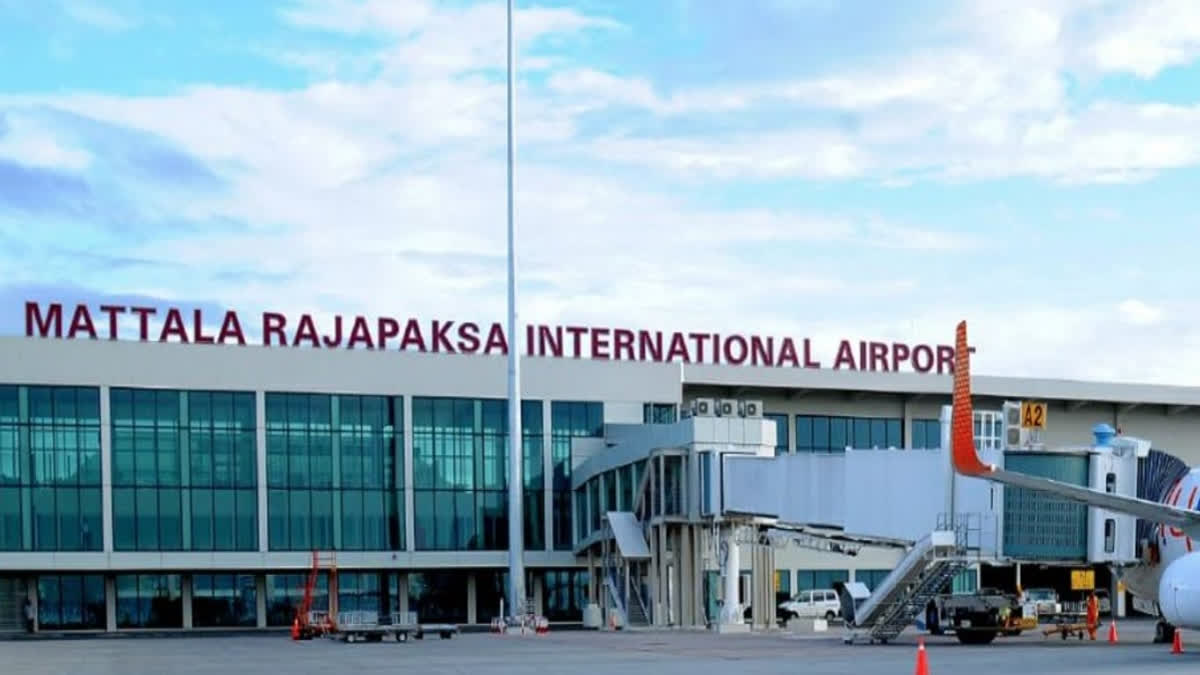New Delhi: The only possible reason why India may be entering into a joint venture (JV) with Russia to run an airport in Sri Lanka, described as the “world’s most unused”, could be curbing Chinese influence in the Indian Ocean region.
Media reports suggest that Russia has expressed its keenness to get into a joint venture with India involving private entities to run the Mattala Rajapaksa International Airport (MRIA) in southern Sri Lanka. According to a report in the Sri Lankan news website Newsfirst, Russian Ambassador to Sri Lanka Levan S. Dzhagaryan has signaled his country’s interest in a joint venture with India to operate MRIA.
“There were different ideas, different proposals, and just to also express ours, its under consideration,” Dzhagaryan was quoted as saying. He highlighted the high number of Russian tourists visiting Sri Lanka, citing it as a key factor in their interest in Mattala airport’s potential. In this connection, he mentioned Russia’s position as Sri Lanka’s second-largest source of tourists, after India, with expectations of up to 1.2 million Russian visitors in 2024.
Earlier this month, K.D.S. Ruwanchandra, Secretary in Sri Lanka’s Ministry of Ports and Aviation, confirmed that following discussions, an agreement was reached to hand over the operations of MRIA to a private joint venture between Indian and Russian entities.
MRIA is located in the town of Mattala, 18 km the from Hambantota port, which was handed over to China by Sri Lanka on a 99-year lease. It is the first greenfield airport and the third international airport in the country, after Ratmalana International Airport and Bandaranaike International Airport in Colombo. The airport was opened in March 2013 by then President Mahinda Rajapaksa, who ordered its construction. Initially, several airlines flew to the airport, including Sri Lankan Airlines which established a hub. However, due to low demand, almost all of these airlines left Mattala by 2018.
Considering the sparse flight activity, there was a proposal to introduce long-term aircraft parking services and establish flying schools and maintenance services at the airport. In 2016, due to the airport's insufficient revenue to repay loans, the Sri Lankan government solicited expressions of interest (EoIs) for managing commercial activities. India then submitted its bid.
Forbes magazine labeled MRIA as “the world’s emptiest international airport” owing to its substantial size yet limited flight operations. In 2020, the newly elected Sri Lankan government terminated negotiations with India for a joint venture to operate the airport. Amidst the COVID-19 pandemic, the airport experienced heightened traffic from repatriation, charter, and seafarer flights.
In 2022, the government revived plans to operate MRIA as a public-private partnership due to ongoing financial losses at the airport. So, why is India interested in getting into a private joint venture with Russia to take over the operations of MRIA? According to an expert on Sri Lankan issues who spoke on condition of anonymity to ETV Bharat, India might be taking strategic interests into consideration because of Chinese presence in Hambantota port.
“India has been expressing interest in acquiring MRIA since 2015-16,” the expert. “This airport is largely being used to store grain. India’s interest might be due to strategic considerations in the face of China’s growing influence in the Indian Ocean.”
In a 2017 article in The Interpreter titled ‘Why India is buying the world’s emptiest airport’, David Brewster of National Security College at the Australian National University who is also the author of the book The India-Australia Security Engagement: Challenges and Opportunities, citing security analysts, wrote that the Hambantota port might be a good place for a Chinese naval base, as part of Beijing’s ‘String of Pearls’ across the Indian Ocean.
“It was, according to several Indian analysts, part of a grand Chinese plan to surround India in the Indian Ocean,” Brewster wrote. China’s ‘String of Pearls’ is a geopolitical strategy and maritime security concept that involves the establishment of a network of Chinese military and commercial facilities across strategic locations in the Indian Ocean region. The term was coined to describe a series of Chinese-funded infrastructure and port development projects, which, when connected, resemble a string of pearls along key maritime routes.
These strategic points include ports and other facilities in countries such as Pakistan, Sri Lanka, Bangladesh, and Myanmar. The primary objective of this initiative is to secure China’s maritime trade routes and enhance its geopolitical influence in the region. By developing and controlling these critical ports, China aims to ensure the safety of its sea lines of communication, facilitate economic activities, and potentially extend its military reach in the Indian Ocean.
However, Brewster pointed out, a naval base like the one in Hambantota, also requires maritime air surveillance capabilities. “Control over Hambantota airport (read MRA) will give India considerable control over how the port is used,” Brewster wrote. “It is difficult to conceive of the Chinese navy developing a significant facility at Hambantota without also controlling the airport.”
Brewster’s logic is that India’s taking control of MRIA is to block China from turning the Hambantota port into a naval base. Till the time of filing of this report, the Indian government has not commented about the reasons for taking over the operations of MRIA. Watch this space.
Also read:


